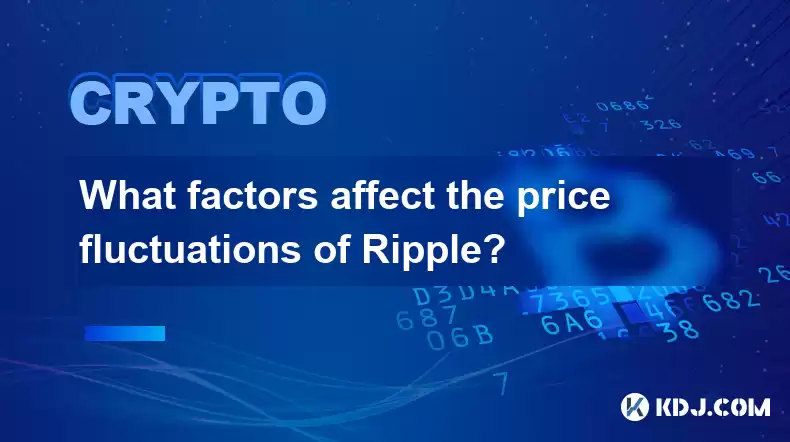-
 Bitcoin
Bitcoin $114100
-0.14% -
 Ethereum
Ethereum $3635
-0.73% -
 XRP
XRP $2.949
-2.85% -
 Tether USDt
Tether USDt $0.9999
-0.03% -
 BNB
BNB $760.3
-0.78% -
 Solana
Solana $163.8
-2.77% -
 USDC
USDC $0.9998
-0.04% -
 TRON
TRON $0.3323
-0.57% -
 Dogecoin
Dogecoin $0.2004
-2.99% -
 Cardano
Cardano $0.7245
-2.87% -
 Hyperliquid
Hyperliquid $37.52
-3.75% -
 Stellar
Stellar $0.3915
-3.58% -
 Sui
Sui $3.416
-2.20% -
 Bitcoin Cash
Bitcoin Cash $559.5
-0.84% -
 Chainlink
Chainlink $16.41
-2.16% -
 Hedera
Hedera $0.2406
-1.78% -
 Ethena USDe
Ethena USDe $1.001
0.00% -
 Avalanche
Avalanche $22.13
-1.98% -
 Litecoin
Litecoin $117.8
-4.32% -
 UNUS SED LEO
UNUS SED LEO $8.989
0.01% -
 Toncoin
Toncoin $3.183
-5.09% -
 Shiba Inu
Shiba Inu $0.00001214
-1.97% -
 Uniswap
Uniswap $9.654
-1.71% -
 Polkadot
Polkadot $3.616
-1.18% -
 Monero
Monero $291.6
-2.66% -
 Dai
Dai $0.9999
0.00% -
 Bitget Token
Bitget Token $4.310
-1.10% -
 Cronos
Cronos $0.1382
-1.93% -
 Pepe
Pepe $0.00001021
-3.40% -
 Aave
Aave $257.9
-1.42%
What factors affect the price fluctuations of Ripple?
Ripple's XRP price fluctuates due to SEC legal battles, market sentiment, technological advancements, adoption rates, Bitcoin's price movements, and competition within the cryptocurrency market.
Mar 16, 2025 at 05:25 pm

Key Points:
- Regulatory Uncertainty: Ripple's price is heavily influenced by ongoing legal battles with the SEC. Positive developments can boost its price, while negative news can lead to significant drops.
- Market Sentiment: Like all cryptocurrencies, Ripple's price is susceptible to broader market trends and investor sentiment. Fear, uncertainty, and doubt (FUD) can drive prices down, while positive news and adoption can push them up.
- Technological Developments: Upgrades to Ripple's technology, such as improvements to its XRP Ledger or the expansion of its network, can impact investor confidence and price.
- Adoption Rate: Increased usage of Ripple's payment solutions by financial institutions and businesses directly impacts demand and consequently, price. Wider adoption generally leads to higher prices.
- Bitcoin's Price: Ripple, like many altcoins, often shows a correlation with Bitcoin's price. A significant movement in Bitcoin's price can trigger similar movements in Ripple's price.
- Competition: The cryptocurrency market is highly competitive. The emergence of new payment solutions or competitors can affect Ripple's market share and subsequently its price.
What Factors Affect the Price Fluctuations of Ripple?
Ripple (XRP), unlike many other cryptocurrencies, is designed primarily for facilitating cross-border payments. Its price, however, is subject to a complex interplay of factors that can cause significant fluctuations. Understanding these factors is crucial for anyone investing in or trading XRP.
Regulatory Uncertainty: The SEC Lawsuit and its Impact
The ongoing legal battle between Ripple Labs and the Securities and Exchange Commission (SEC) is arguably the most significant factor influencing XRP's price. The SEC alleges that XRP is an unregistered security, a claim that Ripple denies. Positive developments in the case, such as favorable court rulings or settlements, typically lead to price increases. Conversely, negative news tends to trigger significant price drops. The uncertainty surrounding the outcome creates volatility.
Market Sentiment: The Power of Fear and Greed
Market sentiment plays a crucial role in shaping XRP's price. Positive news about Ripple's partnerships, technological advancements, or regulatory clarity can generate positive sentiment, leading to price increases. Conversely, negative news, rumors, or broader market downturns can trigger fear and selling pressure, driving the price down. This is particularly true in the volatile cryptocurrency market.
Technological Developments: Upgrades and Improvements
Any significant upgrades or improvements to Ripple's technology can significantly impact its price. These upgrades could include enhancements to the XRP Ledger's speed, scalability, or security. Increased efficiency and improved functionality can attract more users and investors, boosting demand and price. Conversely, setbacks or delays in development could dampen investor enthusiasm.
Adoption Rate: Real-World Use Cases
The adoption rate of Ripple's payment solutions by financial institutions and businesses is a key determinant of XRP's price. Increased usage signifies growing demand for XRP, potentially driving up its price. Partnerships with major banks and financial institutions often lead to significant price increases, as they signal broader market acceptance and credibility. Conversely, a slowdown in adoption can negatively affect the price.
Bitcoin's Price: The Correlation Factor
Ripple's price often correlates with Bitcoin's price. When Bitcoin's price rises, many altcoins, including Ripple, tend to follow suit. This correlation reflects the overall sentiment in the cryptocurrency market. A significant drop in Bitcoin's price can trigger a sell-off in altcoins, including Ripple, leading to price declines. This interconnectedness is a key factor to consider.
Competition: The Crowded Cryptocurrency Landscape
The cryptocurrency market is highly competitive. The emergence of new payment solutions or competitors with similar functionalities can affect Ripple's market share and its price. Innovations in the fintech space and the emergence of rival technologies can pose a threat to Ripple's dominance in the cross-border payment sector. This competition necessitates constant innovation and adaptation for Ripple to maintain its market position.
Other Factors Affecting Ripple's Price:
- Macroeconomic conditions: Global economic events, such as inflation or recessionary fears, can impact investor risk appetite and influence cryptocurrency prices, including Ripple.
- News and media coverage: Positive or negative media coverage of Ripple can influence investor sentiment and, consequently, the price of XRP.
- Whale activity: Large holders of XRP ("whales") can significantly impact the price through their buying and selling activities.
Frequently Asked Questions:
Q: Is Ripple a security?
A: This is a complex question currently being litigated. The SEC claims XRP is an unregistered security, while Ripple maintains it is not. The outcome of the lawsuit will significantly impact the future of XRP and its regulatory status.
Q: How volatile is Ripple's price?
A: Ripple's price is highly volatile, subject to significant fluctuations based on the factors discussed above. Its price can change dramatically in short periods.
Q: What is the potential future of Ripple?
A: The future of Ripple depends largely on the outcome of the SEC lawsuit and its continued adoption by financial institutions. Successful resolution of the lawsuit and increased adoption could lead to significant price appreciation. However, the opposite could also occur.
Q: Where can I buy Ripple?
A: Ripple (XRP) can be purchased on various cryptocurrency exchanges. However, it is important to choose reputable and regulated exchanges to minimize risks. Always research the exchange before using it.
Q: Is Ripple a good investment?
A: Whether Ripple is a good investment depends on your individual risk tolerance and investment goals. Due to its high volatility and the ongoing legal uncertainty, investing in Ripple involves considerable risk. Thorough research and understanding of the risks are essential before investing.
Disclaimer:info@kdj.com
The information provided is not trading advice. kdj.com does not assume any responsibility for any investments made based on the information provided in this article. Cryptocurrencies are highly volatile and it is highly recommended that you invest with caution after thorough research!
If you believe that the content used on this website infringes your copyright, please contact us immediately (info@kdj.com) and we will delete it promptly.
- Coinbase, Financing, and the Crypto Market: Navigating Choppy Waters in NYC Style
- 2025-08-06 12:50:11
- Bitcoin in Indonesia: Crypto Education and Economic Strategy
- 2025-08-06 12:50:11
- DeriW Mainnet: Zero Gas Fees Revolutionize On-Chain Derivatives Trading
- 2025-08-06 10:30:11
- IOTA, Cloud Mining, and Eco-Friendly Crypto: A New York Investor's Take
- 2025-08-06 10:30:11
- Kaspa (KAS) Price Prediction: August 6 - Will It Break Free?
- 2025-08-06 10:50:12
- Pension Funds, Bitcoin ETFs, and Exposure: A New Era of Institutional Crypto Adoption
- 2025-08-06 12:55:12
Related knowledge

What is Chainlink (LINK)?
Jul 22,2025 at 02:14am
Understanding Chainlink (LINK): The Decentralized Oracle NetworkChainlink is a decentralized oracle network designed to bridge the gap between blockch...

What is Avalanche (AVAX)?
Jul 22,2025 at 08:35am
What is Avalanche (AVAX)?Avalanche (AVAX) is a decentralized, open-source blockchain platform designed to support high-performance decentralized appli...

What is Polkadot (DOT)?
Jul 19,2025 at 06:35pm
Understanding the Basics of Polkadot (DOT)Polkadot (DOT) is a multi-chain network protocol designed to enable different blockchains to transfer messag...

What is Litecoin (LTC)?
Jul 23,2025 at 11:35am
Overview of Litecoin (LTC)Litecoin (LTC) is a peer-to-peer cryptocurrency that was created in 2011 by Charlie Lee, a former Google engineer. It is oft...

What is Monero (XMR)?
Jul 21,2025 at 10:07am
What is Monero (XMR)?Monero (XMR) is a decentralized cryptocurrency designed to provide enhanced privacy and anonymity for its users. Unlike Bitcoin a...

How to add indicators to Ethereum chart on TradingView?
Jul 19,2025 at 07:15am
What Is an Ethereum Chart on TradingView?The Ethereum chart on TradingView is a visual representation of the price movement of Ethereum (ETH) over a s...

What is Chainlink (LINK)?
Jul 22,2025 at 02:14am
Understanding Chainlink (LINK): The Decentralized Oracle NetworkChainlink is a decentralized oracle network designed to bridge the gap between blockch...

What is Avalanche (AVAX)?
Jul 22,2025 at 08:35am
What is Avalanche (AVAX)?Avalanche (AVAX) is a decentralized, open-source blockchain platform designed to support high-performance decentralized appli...

What is Polkadot (DOT)?
Jul 19,2025 at 06:35pm
Understanding the Basics of Polkadot (DOT)Polkadot (DOT) is a multi-chain network protocol designed to enable different blockchains to transfer messag...

What is Litecoin (LTC)?
Jul 23,2025 at 11:35am
Overview of Litecoin (LTC)Litecoin (LTC) is a peer-to-peer cryptocurrency that was created in 2011 by Charlie Lee, a former Google engineer. It is oft...

What is Monero (XMR)?
Jul 21,2025 at 10:07am
What is Monero (XMR)?Monero (XMR) is a decentralized cryptocurrency designed to provide enhanced privacy and anonymity for its users. Unlike Bitcoin a...

How to add indicators to Ethereum chart on TradingView?
Jul 19,2025 at 07:15am
What Is an Ethereum Chart on TradingView?The Ethereum chart on TradingView is a visual representation of the price movement of Ethereum (ETH) over a s...
See all articles

























































































